With such easy access to technology, more of our relationships are being recorded, giving more people access to our relationships, even the most private aspects of them. And sometimes, the people we trust the most cannot be trusted with those private details. Over the past five to ten years, cases of revenge porn — where one partner or ex publicly posts sexually explicit images of another — have skyrocketed, leaving victims, law enforcement, and the courts scrambling for legal solutions.
Here’s what’s being done so far, and what you can do if you’re the victim of revenge porn.
1. Facebook Revenge Porn and ‘Sextortion’ — Too Many Cases to Handle
Sadly, social media sites like Facebook, Twitter, and Instagram are flooded with claims of revenge porn and sextortion (threatening to reveal sexually explicit material on the internet). A leaked document showed Facebook moderators had to look at almost 54,000 cases of revenge porn and sextortion on the site in a single month. That means the sites themselves may not be too helpful in having material removed.
2. ‘Revenge Porn’ Website Sued Over Privacy Violations
However, filing a civil suit against the website that published the material, and even the website’s host, are allowed. Websites may be violating state right-to-privacy statutes, and lawsuits may be available under general invasion of privacy tort principles.
3. YouGotPosted ‘Revenge Porn’ Operators Must Pay $900K Judgment
And those lawsuits have been successful. One plaintiff was awarded almost one million dollars after the proprietors of one revenge porn site failed to answer claims that the knew she was a minor, used her photo without permission, and profited from advertising associated with her photo.
4. ‘Revenge Porn’ Law Now in Effect in California
California criminalized revenge porn in 2013, making it illegal for “any person who photographs or records by any means the image of the intimate body part or parts of another identifiable person, under circumstances where the parties agree or understand that the image shall remain private, [to] subsequently [distribute] the image taken, with the intent to cause serious emotional distress, and the depicted person suffers serious emotional distress.”
5. Nevada and FTC Sue Revenge-Porn Website
Other states, and even the Federal Trade Commission have targeted revenge porn sites accused of charging countless individuals hundreds or thousands of dollars to take down pictures and information that should never have been posted in the first place.
If you’ve been the victim of revenge porn, contact an experienced attorney to discuss your options.
Related Resources:
- Find Personal Injury Lawyers Near You (FindLaw’s Lawyer Directory)
- Sextortion: Hackers Using Personal Info to Extort Nude Images, Sexual Favors (FindLaw Blotter)
- Woman Sues Search Sites to Remove Name After Revenge Porn Incident (FindLaw’s Injured)
- Can You Sue If Your Photo Is Used Without Your Permission? (FindLaw’s Injured)



